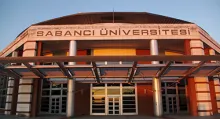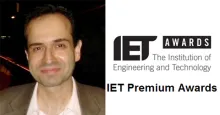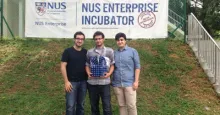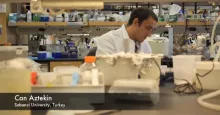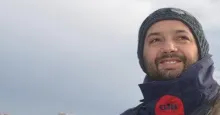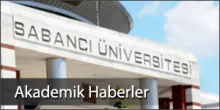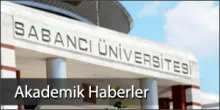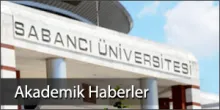Üniversitelerarası Kurul Yabancı Dil Sınavı (YDS) Sonbahar Dönemi başvuruları 15 Temmuz – 24 Temmuz 2013 tarihleri arasında yapılacaktır.
Sınav tarihi 01 Eylül 2013’tür.
Bu sınava,
- Doçent adaylarının,*
- Doktora adaylarının / sanatta yeterlik başvurusunda bulunacak adayların girmeleri gerekmektedir.
- Yüksek lisans programlarına girmek isteyen adaylar da (lisans programı mezunu ile lisans programramında okuyan öğrenciler) bu sınava girebilirler. İlgili üniversiteden yüksek lisans programları için YDS sınav sonuçlarının kullanılıp kullanılamayacağını öğrenmeleri gerekmektedir.
*Daha önceden KPDS ve ÜDS’ye girmiş doçent adayları için, bu sınavların sonuçlarında geçerlik süresi aranmamaktadır. Bilgi için ÜAK’nın internet sayfasına bakabilirsiniz. http://www.uak.gov.tr/kilavuzlar/ykilavuz.pdf
Sınav merkezleri:
a.Almanca, Arapça, Fransızca, İngilizce veya Rusçadan sınava başvuran adaylar: Sınav merkezi tercihleri adayların adres illeri veya adres iline yakın sınav merkezleri olarak sınırlandırılıştır. Buna göre adaylar; eğer adres illerinde sınav yapılıyorsa bu sınav merkezini, adres illerinde sınav yapılmıyorsa ÖSYM tarafından belirlenen yakın sınav merkezlerini tercih edebileceklerdir. Adayların Adres İline Göre Tercih Edebilecekleri Sınav Merkezleri ÖSYM’nin http://www.osym.gov.tr İnternet adresinde "YDS Başvuru Bilgileri" alan ıiçinde yer almaktadır. Sınav Merkezi Tercihi alanı nda sadece sistem taraf ından izin verilen sınav merkezlerinden biri tercih edilebilir (Almanca, Arapça, Fransızca, İngilizce ve Rusçadan herhangi birinde, aynı sınav merkezinde sınava alınacak aday sayısının 600’den daha az olduğu durumlarda sınav güvenlik tedbirleri uyarınca ilgili sınav merkezinde o dilde sınav yapıp yapmama ve ilgili sınav merkezinde o dilde sınav yapılmaması durumunda ise bu adayların hangi sınav merkezinde sınava alınacağı hakkında ÖSYM Yönetim Kurulu tarafından başvurular tamamlandıktan sonra karar verilecektir.)
b.Bulgarca, Farsça, İspanyolca, İtalyanca veya Yunancadan sınava başvuran adaylar (İlgili yönetmelik gereği YDS Sonbahar Döneminde bu dillerden sınav yapılmayacaktır.):Sınav merkezi tercihi olarak Ankara’daki 3 sınav merkezinden birini tercih edebileceklerdir [061 Ankara-Altındağ Mamak, 062 Ankara-Çankaya, 063 Ankara-Kuzey (Keçiören/Yenimahalle/Etimesgut/Sincan )]
c. Çince, Danimarkaca (Danish Dili), Ermenice, Gürcüce, Hollandaca (Dutch Dili), Japonca, Korece, Lehçe, Macarca, Portekizce, Rumence, Sırpça veya Ukraynacadan (Ukraince) sınava başvuran adaylar (İlgili yönetmelik gereği YDS Sonbahar Döneminde bu dillerden sınav yapılmayacaktır.): Sınav Merkezi tercihi olarak 062 Ankara-Çankaya sınav merkezinin kodunu yazacaklardır.
İlgi Yönetmelik gereği; YDS İlkbahar Dönemi Sınavları, Almanca, Arapça, Bulgarca, Çince, Danimarkaca (Danish Dili), Ermenice, Farsça, Fransızca, Gürcüce, Hollandaca (Dutch Dili), İngilizce, İspanyolca, İtalyanca, Japonca, Korece, Lehçe, Macarca, Portekizce, Rumence, Rusça, Sırpça, Ukraynaca (Ukraince) ve Yunanca dillerinden, Sonbahar Dönemi Sınavları ise sadece Almanca, Arapça, Fransızca, İngilizce ve Rusçadan yapılır. Bu nedenle “b” ve “c” maddeleri Sonbahar Dönemi Sınavında işleme alınmaz.
Kılavuz dağıtımı yapılmayacaktır. Adaylar, başvuru süresi içinde http://www.osym.gov.tradresinden aşağıdaki bilgilere ulaşabilirler.
- Başvuru Kılavuzu
- Aday Başvuru Formu
- Başvuru Merkezleri
- Adres İline Göre Tercih Edilebilecek Sınav Merkezleri
- Başvuru İşleminde Adayların İzleyeceği Yol
Sınav Ücreti: 50 TL
Başvuru Hizmeti Ücreti: 3 TL
Yeni Şifre Edinme Ücreti: 2 TL
Başvuru Mrkz. Fotoğraf yenileme: 5 TL
Sınav Ücretinin Yatırılacağı Yerler: T. Halk Bankası, T. Vakıflar Bankası, T.C. Ziraat Bankası, Akbank, Kuveyt Türk Katılım Bankası, Türk Ekonomi Bankası ve Denizbank’ın tüm şubeleri ve internet sayfaları, tüm PTT İş Yerleri
a ) İnternet ile bireysel başvurular
2011, 2012 veya 2013 yıllarında yapılan sınavlarından birine başvuran adaylar, YDS başvurularını isterlerse bireysel olarak internet aracılığıyla yapabilirler. Bu adayların T.C. Kimlik/Y.U. Numarası ile şifrelerini girmeleri, YDS sınavını seçerek mevcut bilgilerini kontrol etmeleri, kimlik bilgileri dışında istenilen bilgi alanlarını güncellemeleri ve varsa eksik bilgilerini tamamlamaları gerekir. Ayrıca başvuru işlemi tamamlandıktan sonra Aday Başvuru Kayıt Bilgileri dökümünü yazıcıdan alıp kontrol etmeleri ve bu belgeyi saklamaları gerekir.
b ) Başvuru merkezi aracılığıyla yapılacak başvurularda, başvuru merkezine gelmeden önce;
Aday Bilgi Formunun eksiksiz ve doğru olarak doldurulmuş olması,
Sınav ücretinin bankaya yatırılmış olması ve belgesinin adayın yanında bulunması,
Adayların; fotoğraflı ve onaylı özel kimlik belgesini yanlarında bulundurmaları gerekir.
YDS başvuruları için, İnsan Kaynakları birimi 1045 no’lu odadan Serpil Gürbüz ile iletişime geçebilirsiniz. (0 216 483 9082)

